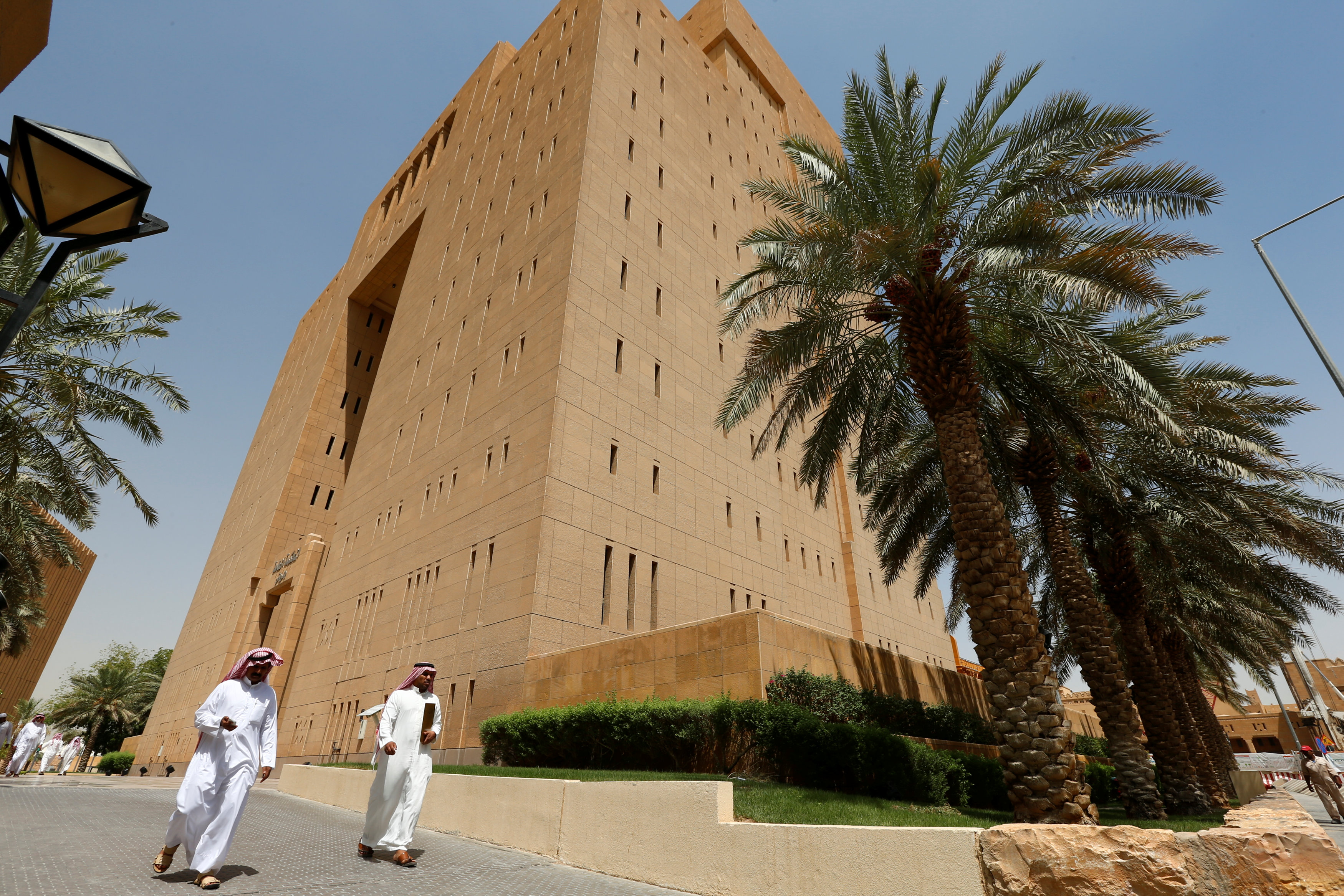The judicial system in the Kingdom of Saudi Arabia is distinguished in the region by its integration of Islamic Sharia principles with modern legislative reforms introduced under the framework of Vision 2030. For foreign investors, businesses, and individuals engaged in contracts or involved in commercial, labor, administrative, and other disputes in the Kingdom, it is essential to gain a clear and detailed understanding of the Saudi judicial system.
In this article, we will provide an overview the Court System in Saudi Arabia, outlining the structure and functions of the courts, and shedding light on the key legal procedures they follow.
Overview
The judiciary in Saudi Arabia is recognized as an independent authority and constitutes one of the three branches of government, alongside the executive and regulatory authorities. According to the Basic Law of Governance, the appointment or dismissal of judges is issued by royal decree. Judges may not be transferred to other positions without their consent, except in cases of promotion, in line with the provisions of the judicial system.
Foundations of the Saudi Judicial System
The Saudi judicial system is primarily founded on Islamic Sharia, derived from the Holy Qur’an and the Sunnah (Prophetic Tradition), along with complementary legislation and royal decrees regulating commercial, civil, and business affairs. The Ministry of Justice oversees the administration of the courts, while the Supreme Judicial Council supervises judges and judicial affairs.
the Court System in Saudi Arabia
the Court System in Saudi Arabia is composed of four main bodies:
1. The Supreme Court
The Supreme Court stands at the top of the judicial hierarchy. It does not resolve disputes directly; rather, it reviews contested rulings issued by lower courts. The Court primarily handles hudud (Islamic criminal penalties) and qisas (retribution) cases, such as murder, amputation, or stoning.
Its role is to ensure the correct application of Sharia and statutory rules, supervise the rulings of the Courts of Appeal, and decide on petitions to reconsider judgments.
2. Courts of Appeal
The Courts of Appeal review decisions issued by first-instance courts after hearing the parties’ statements, in accordance with the Law of Sharia Procedure and the Law of Criminal Procedure. These courts also consider petitions for reconsideration of their own rulings.
3. First-Instance Courts
First-instance courts are the backbone of the Saudi judicial system and are classified into several categories:
- General Courts
- Criminal Courts
- Labor Courts
- Commercial Courts
- Personal Status Courts
They adjudicate cases based on two main principles:
- Type of case: whether commercial, family-related, criminal, urgent, or otherwise.
- Geographical jurisdiction: cases are assigned to the court located within the relevant territorial boundary.
4. Enforcement Courts
Enforcement Courts specialize in handling disputes related to the execution of judgments, regardless of their value. These courts consist of specialized circuits; each presided over by one or more judges. They ensure that judicial rulings, debt collections, and enforcement of contracts or foreign judgments are carried out effectively.
Issuing Laws in the Kingdom of Saudi Arabia
The legislative process in the Kingdom of Saudi Arabia passes through five main stages, as follows:
1. Proposal Stage
This is the initial stage of the legislative process. It begins with the preparation of the first draft of the law and continues until it is submitted to the competent regulatory authority. At this stage, the text is referred to as a draft law, marking the first step toward its adoption.
2. Voting Stage
In this stage, the draft law is presented to the relevant regulatory authority for discussion, approval, or rejection. Once approved, it is referred to the Council of Ministers for further consideration and endorsement.
3. Ratification Stage
At this stage, the President of the Session approves the draft law. It then becomes an official law after receiving the King’s approval and royal signature, which represent the highest level of ratification.
4. Promulgation Stage
This stage signifies the formal issuance of the law and confirms its legal existence.
5. Publication Stage
Finally, the law is published and officially announced, with a specific date set for its entry into force, ensuring clarity and transparency for all stakeholders.
Litigation Procedures Before the Court in Saudi Arabia
Litigation before the courts in the Kingdom of Saudi Arabia may be conducted either by the parties themselves—whether by attending sessions remotely through electronic platforms or by appearing physically before the judge. The general rule is that court sessions are held remotely, except in specific circumstances or where the judge orders in-person attendance. Alternatively, proceedings may be conducted through authorized representatives holding a duly attested power of attorney. The representative must formally declare their presence and submit a copy of the power of attorney to the court. While such representatives are empowered to attend sessions and present arguments on behalf of their clients, they may not undertake substantive actions—such as waivers, settlements, or admissions—unless expressly authorized to do so.
Certain types of cases, however, require by law that representation be made through a Saudi-licensed attorney, particularly in major commercial disputes, corporate matters, and similar proceedings, where representation by non-licensed persons is not accepted.
If the plaintiff fails to appear without a valid excuse, the case is dismissed. Should the absence be repeated, the case may only be reconsidered by decision of the Supreme Court. The absence of the defendant, on the other hand, results in a judgment in absentia if the defendant has not been duly notified. However, if the defendant was notified or has previously submitted a defense, the judgment is still deemed to have been rendered in absentia.
The court also retains the authority to compel the defendant to appear if it is established that they are deliberately delaying proceedings. A defendant convicted in absentia may file an objection within the statutory period by submitting a memorandum of opposition. In such cases, the court may, when deemed necessary, grant relief to the absent defendant by considering the objection and re-examining the judgment, and may also temporarily suspend the enforcement of the judgment until the objection is resolved, provided that the objection satisfies all statutory and procedural requirements
Electronic Judicial Services
The Kingdom of Saudi Arabia places great emphasis on justice and the judiciary by continuously updating laws and expanding the scope of electronic services to facilitate procedures for both citizens and foreigners. Among the most prominent of these services are:
Electronic Filing of Lawsuits: Plaintiffs, defendants, and their representatives can submit case details through the online lawsuit platform without visiting the court.
Electronic Pleadings: Parties to a lawsuit and their attorneys can submit pleadings, respond to court requests, and follow up on proceedings directly through the Najiz portal.
Reconciliation Services: Disputing parties can complete the reconciliation process through the Taradi platform, encouraging amicable settlements outside the courtroom.
Marriage and Divorce Contracts: Issuing marriage or divorce contracts can be done electronically with ease via the Ministry of Justice platform.
Powers of Attorney: Individuals can issue powers of attorney electronically—whether single-party or multi-party—through the Najiz platform.
Civil Status Services: Services such as issuing a death certificate or registering a newborn can be completed online through the Ministry of Justice platform.
Real Estate Transactions: Beneficiaries can electronically list and process real estate transactions, enabling sellers and buyers to complete deals fully online.
Bankruptcy Applications: An electronic service that allows beneficiaries to submit bankruptcy requests and initiate proceedings with the relevant authorities in line with the Kingdom’s bankruptcy law.
Deed Updates: Beneficiaries can request the update or amendment of electronic property deeds without the need to consult a notary public.
Electronic Arbitration in Commercial Disputes
The Saudi Center for Commercial Arbitration has introduced an enhanced version of its electronic arbitration service, providing a fully virtual alternative for resolving small commercial disputes. This advanced service leverages the latest technologies and internationally recognized procedures to ensure efficient, transparent, and reliable dispute resolution.
By adopting this flexible approach, parties can settle disputes in a significantly shorter timeframe and at a much lower cost, without the need for physical attendance. The service reflects the Kingdom’s commitment to fostering a modern, business-friendly environment and strengthening investor confidence in line with Vision 2030 objectives.
Disclaimer: This content is not legal advice. No liability is assumed. For legal consultation, please contact us.




